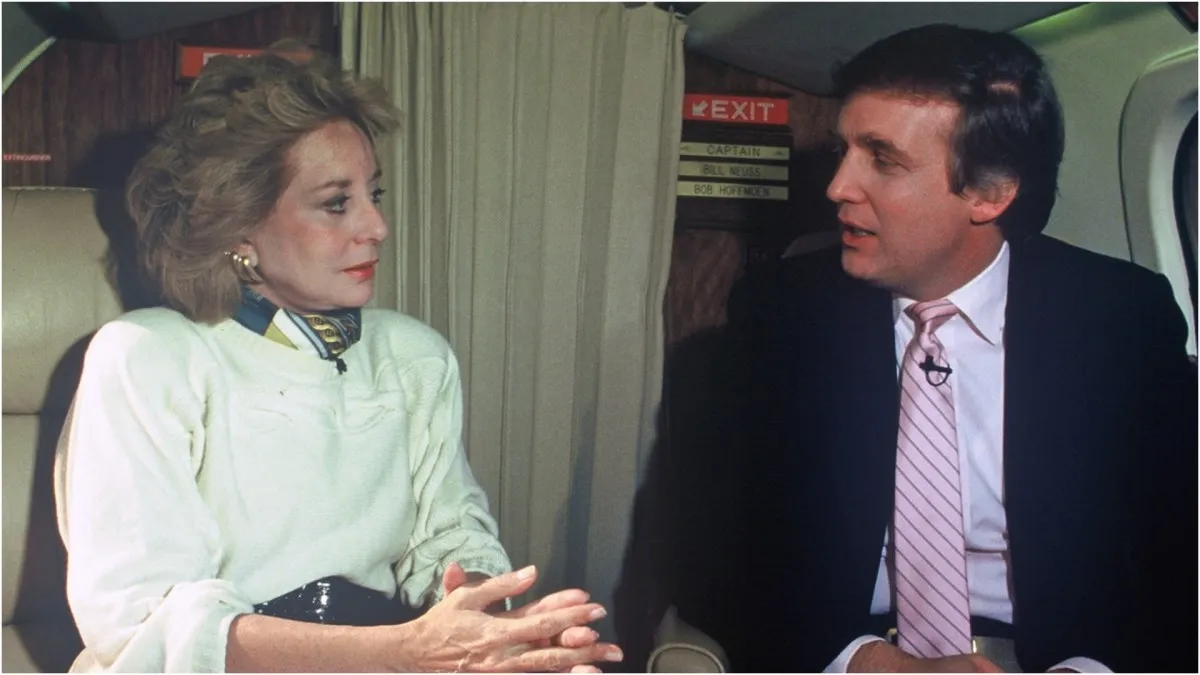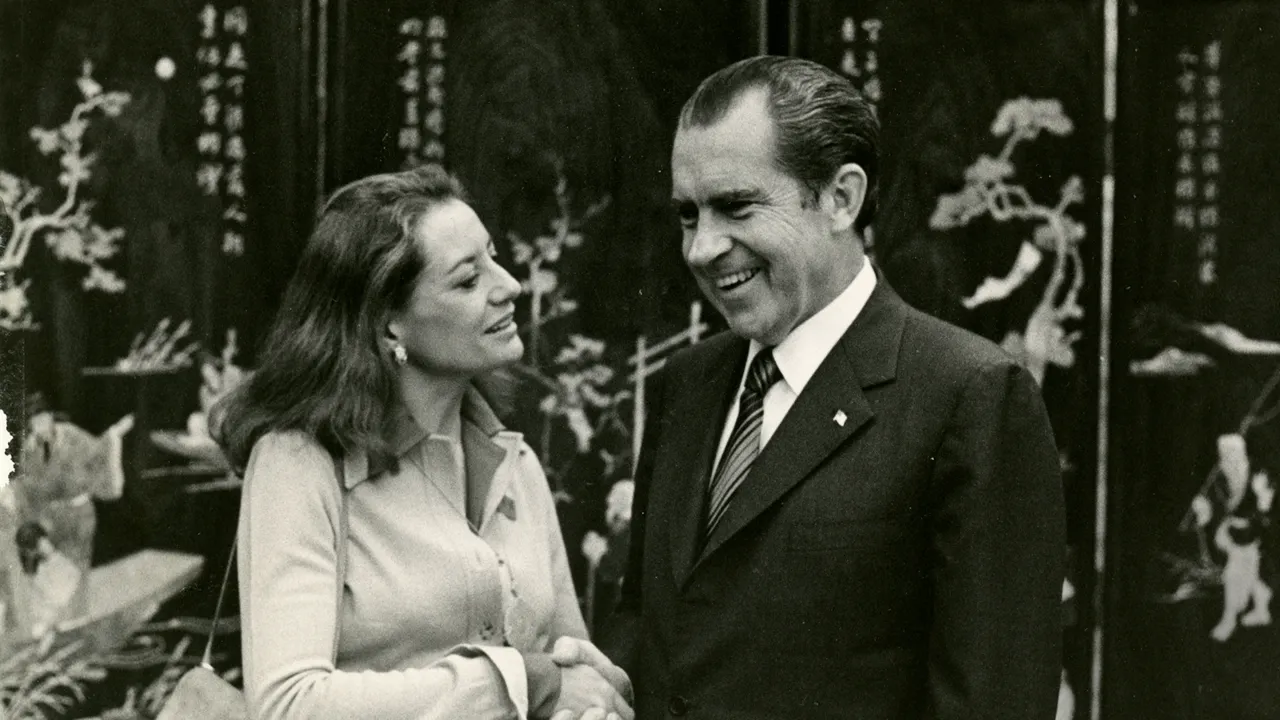The documentary Barbara Walters: Tell Me Everything is a film much like its subject: sharp, uncomfortably direct, and possessed of a ferocious intelligence that refuses to settle for simple answers. It presents a life that was a constant negotiation between a public persona of empathetic inquiry and a private reality of steel-willed ambition.
Here was a woman who did not just report on the seismic cultural shifts of the 20th century; she was one of them, a genuine trailblazer who shattered the stained-glass ceiling of broadcast news with methodical determination.
Yet the film does not sanitize its subject. It understands that the same person who could disarm a dictator with a disarmingly human question could also maintain a perplexing, decades-long friendship with the political fixer Roy Cohn.
The film sets its hook not by promising a tribute, but by promising a full accounting of a deeply complicated and significant American figure. She was a powerhouse, but the sources of her power were often far stranger than her audience ever imagined.
Ambition in the Boys’ Club
To understand Barbara Walters, one must first understand the world that tried to reject her. Her 1961 entry into NBC’s “Today Show” was a case study in institutional sexism, a place where she was relegated to “women’s stories.” The film shows us a segment of her dressed in a Playboy bunny outfit—a moment so condescending it feels like a parody, yet it was her reality. This was the professional sandbox she was expected to play in.
Her transformation began in opposition. When new host Frank McGee insisted he be allowed to ask the first three questions of any major guest, a move designed to keep her firmly in her place, Walters pivoted. She began conducting her own interviews outside the studio, creating the very format that would become her kingdom.
His death in 1974 was the catalyst for her contractual ascent to co-host. Her subsequent move to ABC as the nation’s first female network news anchor should have been a triumph. Instead, she was met with the on-air hostility of co-host Harry Reasoner, a man whose chilly contempt made her question the entire venture. It was a “mistake,” she called it, a sentiment that only changed when the network visionary Roone Arledge saw her potential not as a traditional anchor, but as an event.
The Velvet Shiv
Walters perfected a peculiar form of journalistic attack, a kind of velvet shiv. The method was always the same: create an atmosphere of comfort and intimacy, and then, with surgical precision, slide in the one question everyone was thinking but no one else dared to ask.
The film’s opening montage is a masterclass in this technique. To Richard Nixon: “Are you sorry you didn’t burn the tapes?” To Vladimir Putin: “Did you ever order anyone killed?” To Barbra Streisand: “Why didn’t you have your nose fixed?”
This approach was her genius. It weaponized a sensibility her male colleagues dismissed as feminine, using a personal touch to get to a deeper, often more unsettling, truth about public figures.
Of course, this very method was seen by many as the corrosion of hard news, the point where journalism began its long, slow dance with pure entertainment. The documentary shows her at a summit with Anwar Sadat and Menachem Begin, where her main concern seems to be securing the first joint interview, not pressing the leaders on intractable policy.
This was the birth of the interview as a “get.” The system reached its zenith with her Monica Lewinsky special. Seventy million people watched, not for a political exposé, but for a national confession. Public affairs had officially become a primetime spectacle, and Walters was its undisputed ringmaster.
The Transactional Heart
The film does not shy away from the idea that for Walters, many relationships were a form of currency. Her intense professional rivalry with Diane Sawyer is painted as something that sprang from a place of deep personal insecurity, a constant need to measure herself against the “blonde goddess” her network had brought in. This need for dominance extended beyond the newsroom.
Her close bond with Roy Cohn, the infamous persecutor and mentor to Donald Trump, is presented as a starkly transactional alliance. He helped her father with tax issues, and for that, he was granted a lifetime of loyalty and access.
Her moral compass, it appears, often pointed toward whatever was most useful for her career. This pragmatism extended to her family, with her relationship with her adopted daughter, Jackie, portrayed as fraught and distant—another potential cost of a life lived with such singular focus.
Her final act, the creation of “The View,” feels like the only possible culmination of her life’s work. The show institutionalized her entire philosophy, creating a permanent, daily space where the personal and the political were not just entwined but were one and the same.
It was gossipy, revelatory, and it extended her career by a decade. More than that, it was the fulfillment of the world she helped create, a media environment where confession is content and every political issue is, at its center, a personal story waiting to be told.
Full Credits
Director: Jackie Jesko
Producers and Executive Producers: Jackie Jesko, Marcella Steingart, Sara Bernstein, Meredith Kaulfers, Brian Grazer, Ron Howard, Justin Wilkes, Betsy West, Muriel Pearson, David Sloan
Cast: Oprah Winfrey, Katie Couric, Joy Behar, Bette Midler, Cynthia McFadden, Connie Chung, Andy Cohen, Cindy Adams, Martin Clancy, Peter Gethers, Lori Klein
Director of Photography (Cinematographer): Matt Porwoll
Editors: Andrew Morreale
Composer: Sami Jano
The Review
Barbara Walters
Barbara Walters: Tell Me Everything succeeds because it is not a tribute. It is an autopsy of a cultural force, performed with the same sharp-edged precision Walters used on her own subjects. The film presents an essential, unvarnished portrait of a woman whose ambition was both her greatest weapon and her most profound flaw. It correctly identifies that her true legacy isn't just the barriers she broke, but the very creation of our modern media ecosystem where the personal is the political, and the confession is the prize. It is a vital and sobering examination.
PROS
- An unflinching and complex portrait that avoids simple hero-worship.
- Excellent use of archival footage to contextualize her struggles and influence.
- Provides a thoughtful analysis of how Walters' style reshaped the intersection of news and entertainment.
CONS
- The absence of key figures like Diane Sawyer or her daughter leaves noticeable gaps.
- The film itself points to certain career controversies it then chooses not to explore deeply.
- Its analytical tone can feel emotionally distant at times.
















































